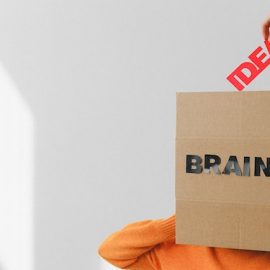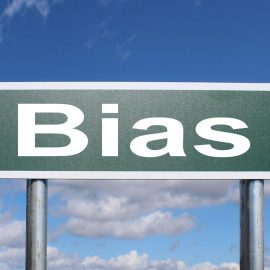
This is a free excerpt from one of Shortform’s Articles. We give you all the important information you need to know about current events and more.
Don't miss out on the whole story. Sign up for a free trial here .
Why has there been a sudden decrease in confidence in science? How could the distrust of science endanger individuals and the country?
The public’s trust in science has dropped sharply over the last few years. This trend has people from all sides of the political spectrum, and in fields ranging from medicine to public policy, concerned about the future of progress in the United States.
Here are some possible reasons why trust in science is waning.
Poll Shows Sharp Decline in Public Trust Since 2020
According to a 2022 Pew Research report, just 29% of US adults have “great confidence” that scientists act in the public’s best interest (down from 40% in 2020). In the same poll, 48% of responders said they have some confidence in scientists, while 22% reported having little or no confidence in scientists.
Why Have People Lost Confidence in Science?
Before examining the impacts and possible solutions to the loss of the public’s trust in science, we need to understand where this wave of distrust is coming from.
In large part, Americans’ growing suspicion of science is a backlash to the Covid-19 pandemic and the official responses to it. There are two major reasons for this:
First, state and federal governments issued a number of controversial policies during the pandemic. Common complaints were that policies such as mandatory masking and shelter-in-place orders violated people’s freedoms and that workplaces and students suffered from the disruptions of their normal routines.
Second, people became frustrated with the government’s mixed messages about Covid-19. While medical scientists and government officials scrambled to deal with the pandemic, many US citizens grew annoyed with unclear, sometimes contradictory guidelines and policies.
The Political Split and Why It Matters
While trust in doctors has gone down across all US demographics, how much it’s gone down varies significantly among different groups; this fact can provide valuable insights about why it’s happening. Trust in doctors and scientists is lowest among conservatives, and according to the 2022 Pew Report, the conservative demographic also saw the largest drop in confidence since 2020.
Some researchers say that this recent wave of skepticism is just a natural progression of Republicans’ long-standing dislike and distrust of institutions. However, some others link conservative doubts more directly to the Covid-19 pandemic and to right-wing discourse about it.
To reiterate, public trust in scientific and medical professionals has gone down across all demographics, not just among conservatives. However, some researchers studying this phenomenon believe that the political split on the issue is telling, and that conservative organizations—both in the government and the media—have underscored it.
The Dangers of Widespread Distrust
The declining public trust in scientists and scientific institutions has implications both for individual safety and for the country’s stability.
First, people who reject scientists’ advice can put themselves—and others—at risk. For instance, skepticism about the Covid vaccines caused well over 200,000 preventable deaths, both among the anti-vaxxers themselves and among immunocompromised people who were relying on herd immunity to stay safe.
Second, some public policy experts foresee a less immediate, but even more dangerous threat: US politics becoming polarized around the very concept of trust, and the question of who is trustworthy.
In other words, these experts are warning of a post-truth society where Democrats and Republicans blindly trust what “their people” say, and refuse to listen to anything “the other side” says. In such a society, agreement and compromise would become all but impossible.
How Can Scientists Rebuild Trust?
Whether this vision of a post-truth society could become reality, it’s clear that scientific institutions have a lot of work to do to rebuild public trust. The CDC’s new director, Dr. Cohen, has made regaining people’s confidence a top priority and has announced a three-step plan to do so:
Step one: transparency. Cohen says clear, simple, and honest communication is crucial to restoring people’s trust in the CDC. This includes being honest about what their scientists know and don’t know and how confident they are in their findings.
Step two: competence. In addition to trusting the CDC’s scientists to be honest, Cohen wants to ensure that people trust the institution to effectively protect public health. To that end, the CDC’s website discusses plans to modernize its laboratories and information systems, as well as plans to expand and diversify its workforce.
Step three: networking. Finally, Cohen says that the CDC alone can’t keep the entire US safe and healthy, so she wants to build working relationships with other organizations to help protect Americans.

Want to fast-track your learning? With Shortform, you’ll gain insights you won't find anywhere else .
Here's what you’ll get when you sign up for Shortform :
- Complicated ideas explained in simple and concise ways
- Smart analysis that connects what you’re reading to other key concepts
- Writing with zero fluff because we know how important your time is






